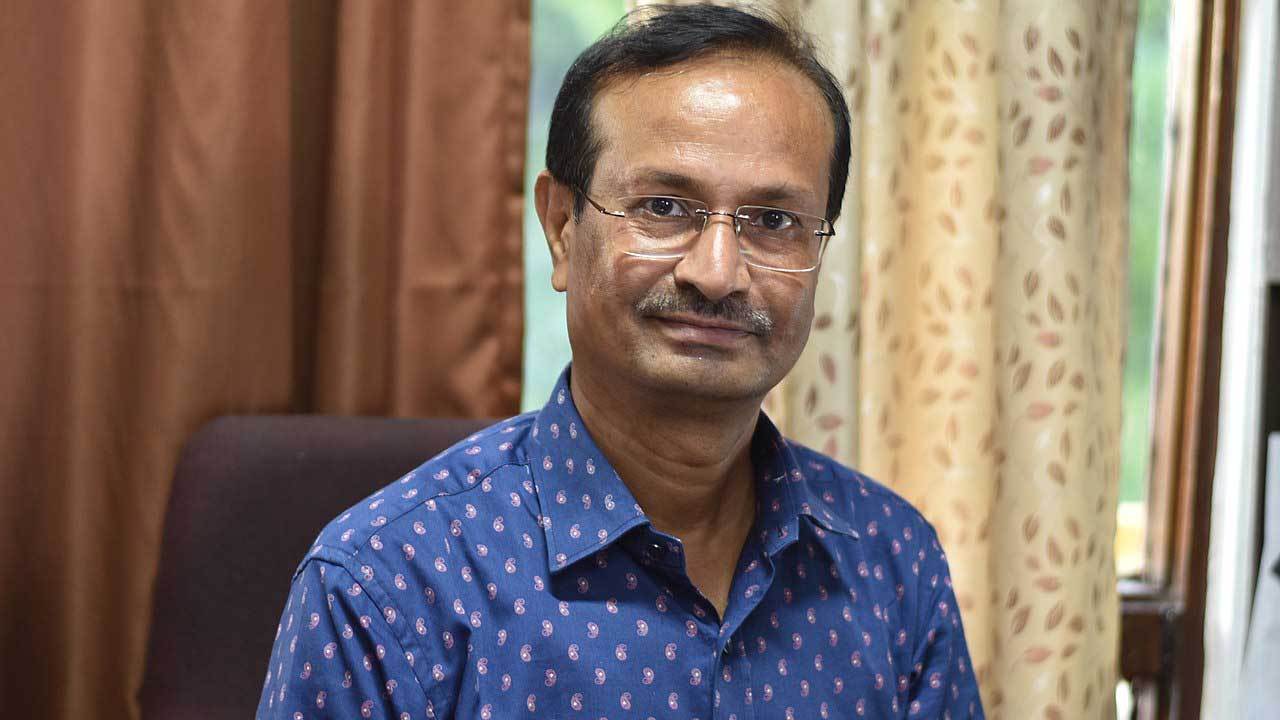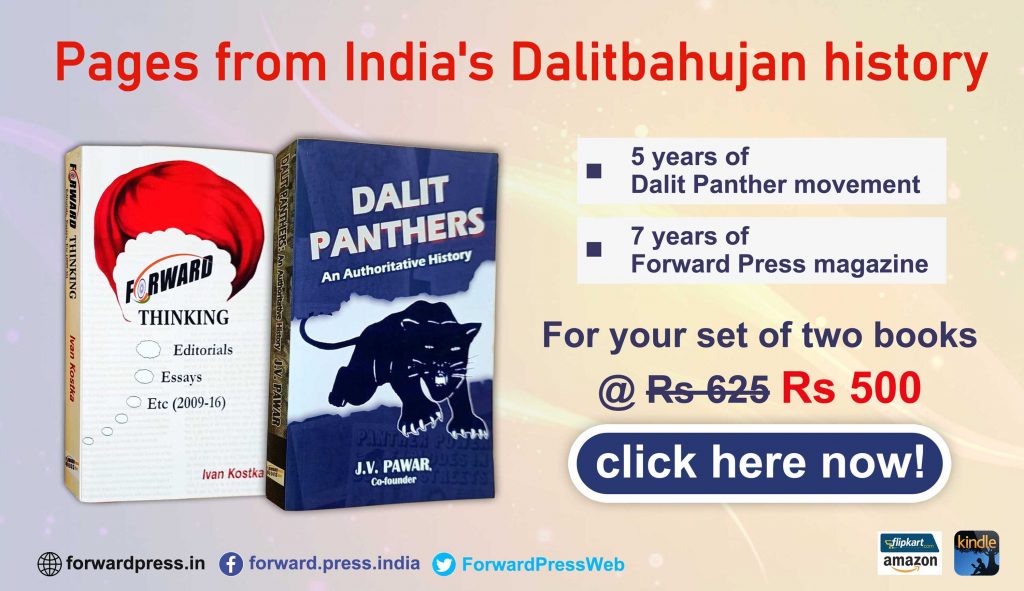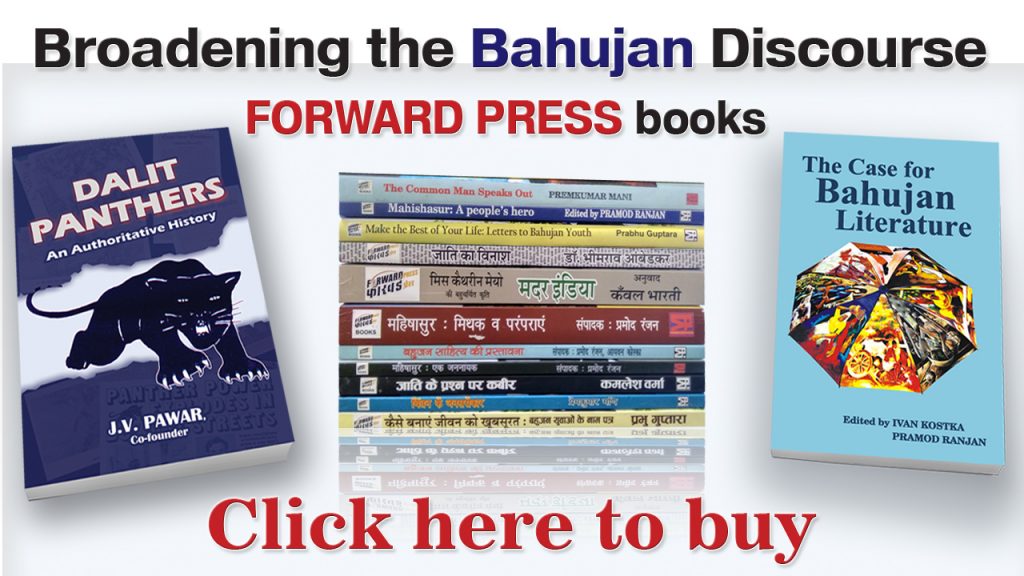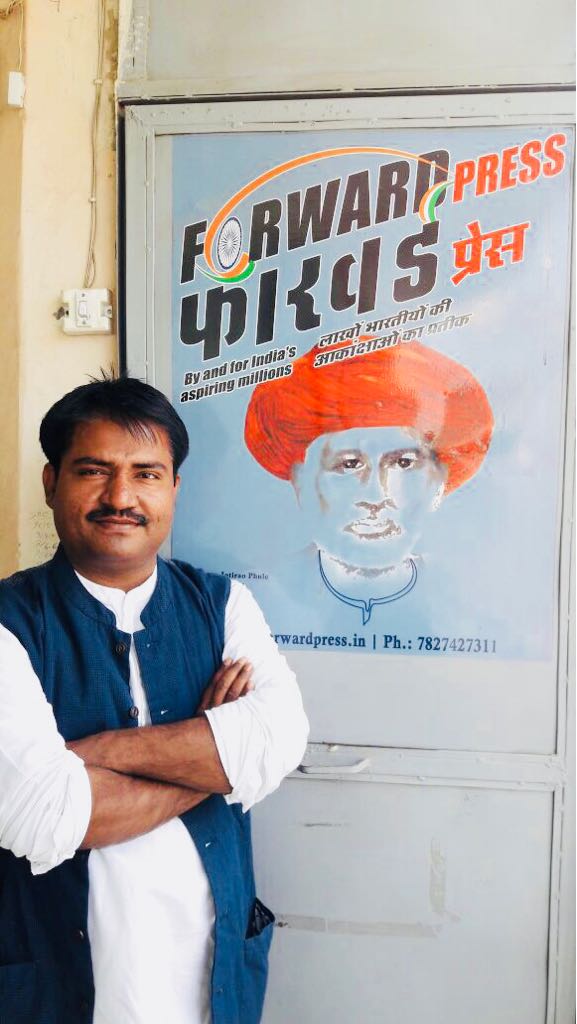Prof Sanjay Kumar, director, Centre for the Study of Developing Societies (CSDS), is one the leading poll analysts in India. Against the backdrop of the nationwide discussions and debates on caste census, he tells FORWARD Press Hindi editor Nawal Kishore Kumar that caste census, if carried out, will be a significant development and in fact, will usher in Mandal 2.0. Excerpts:
How important is caste census to psephology?
Psephology is about predicting the outcome of an election on the basis of the number of voters from a community, which community voted for which party or candidate, which community didn’t vote in large numbers and so on. Now, if we do not know the population of various communities, it becomes a major handicap. Psephologists also predict voting preferences of voters of different communities. Today, we know the exact number of voters of the Scheduled Caste (SC) and Scheduled Tribe (ST) communities. But we have no data on the OBCs. We do not know what the population of OBCs in, say, Bihar, Tamil Nadu or Uttar Pradesh, is. Similarly, we have no idea how many upper-caste people populate the different states. These figures are needed for psephological interpretations.
Will a caste census change political equations in the states?
Post-Mandal, the politics of North India, if not of the entire country, underwent cataclysmic changes. The V.P. Singh government had implemented the recommendations of the Mandal Commission. This changed things beyond recognition in the states north of the Vindhyas, especially Uttar Pradesh and Bihar. Until then, the upper castes dominated the political arena in these states. But now, no party can afford to ignore the OBCs here. The upper castes can do politics but they can’t win elections. I call this Mandal 1.0. I feel that if a caste census is conducted, the OBC issue will again bounce back centre stage. It will breathe a new life into the parties born of post-Mandal politics. These parties are losing their sheen and their popular base.
Today, there is unanimity among political parties on the issue of caste census. The parties representing the OBCs are raising the issue aggressively. Has “Backward versus Forward” become the central theme of politics?
Post-Mandal, electoral politics became polarized between the Backwards and the Forwards. In the immediate aftermath of the V.P. Singh government accepting the recommendations of the Mandal Commission, it seemed as if the ground had slipped from under the feet of the upper castes. It seemed it would take them a long time to bounce back. But that did not happen. The upper-caste parties took to OBC politics and started making advances. They declared themselves champions of the backward classes. Thus they had to recognize the OBC voter. Post-Mandal politics, which began from Bihar and UP, gradually started expanding towards Rajasthan and Haryana. The “Backwards versus Forwards” politics has been going on for the past 30 years. Caste census would give it a new lease of life, more teeth, an edge.
Those demanding a caste census argue that it would help the government formulate better policies and programmes for the welfare of the OBCs. How valid is this claim?
The welfare policies for the Dalits and the Adivasis are based on the knowledge that they constitute 15 per cent and 7.5 per cent of the population, respectively. Whether it is reservations or scholarships or any other government scheme, their share is determined on the basis of their proportion in the population. But that is not happening with respect to the OBCs as their population figures are not available. At the time of the implementation of the Mandal Commission, the reservation quota for OBCs was fixed at 27 per cent. The Supreme Court put a 50 per cent cap on reservations. Yet, there is an ongoing debate for the lifting of this cap. It is being said that like the SCs and the STs, the OBCs, too, should be given reservation on the basis of their share in the population. If a caste census is held, we will have an idea of the total population of the OBCs. If the OBCs form 40-50 per cent of the population, a 40-50 per cent quota should be set aside for them. Such a demand will gain ground. The parties whose popular base is among the OBCs, the parties that do the politics of the OBCs, will forcefully raise this demand. They will say that it is unjust to give just 27 per cent reservations to the OBCs. They will contend that like the Dalits and the Adivasis, the OBCs, too, should get reservations in keeping with their share in the population. This demand is bound to be raised.
According to the Mandal Commission estimates, OBC form around 52 per cent of the population. But their quota was fixed at 27 per cent and the Supreme Court capped reservations at 50 per cent. Suppose the caste census reveals that OBCs make up about 60 per cent of the population. Still, their quota can’t be increased in view of the Supreme Court cap.
This is something the judiciary will decide. But the parties and the leaders doing the politics of social justice – and their second generation who are at the forefront now – will get a new lease of life. They will take up this issue; they will mobilize parties and their leaders around it. This may give a new direction to OBC politics. This is not to say that OBC politics is not there now. But a caste census will lend sharpness and teeth to this brand of politics. They will get a new platform. They may have used the same platform earlier, too. But they appeared weak; their hold on politics was weakening. But as the figures come in, they will regain control. They will demand caste-based reservations. The major parties, even if they are in the government, won’t be able to say no to this demand.

Won’t a caste census bring the OBC leaders enjoying power for the past three-four decades under the scanner? Won’t people ask them what they have done for the OBCs all these years?
Certainly, the parties, both at the national and the state levels, which would feel that they are losing ground, would try to make such allegations. That is because the OBCs are their support base. They will definitely try to hold up the mirror to OBC leaders. They will ask, “What did you do when you were sharing power at the Centre and in the states?” But I think the regional parties will be able to devise a suitable riposte. They can always argue that they did try and they were consistently making their demands known but that the successive central governments did not show any interest, the governments were not sympathetic to their cause. Wordy duels, trading of charges – all this will happen. We will see whose arguments are more logical and weighty.
Will the caste census trigger a race between the upper OBCs like Yadavs, Kurmis and Kushwahas on the one hand and the extremely backward castes on the other hand?
That race has already begun. In every state, among the OBCs, there are castes which are socio-economically better off than the others. In Bihar, Yadavs and Kurmis are more prosperous than other OBC castes. Politically and numerically also they are stronger. In UP, Yadavs are 10-12 per cent of the population and they are dominant in both economic and political terms. Over the past 10 years, the BJP has spurned the powerful OBC castes and has mobilized the lower and extremely backward OBCs instead. We talked about psephology. Whom did the OBCs vote for 10-15 years ago? There is another issue. Is the OBC vote consolidated? It is not so. The upper OBCs continue to be with the parties they have been associated with for the past many decades. But the lower OBCs have started leaning towards the Bharatiya Janata Party (BJP). This was apparent in the last elections. The BJP has made deep inroads into the lower OBCs.
There is also a view that if the government cannot count the OBCs for want of adequate resources, let it just count the upper castes.
There is no difference – it is simple. Whether you are counting the OBCs or the upper castes or whoever, you will have to go from door to door and ask people about their caste. Where do resources come into this? During a census, the enumerators visit each house and ask the Dalits and Adivasis about their caste. So, resources are not an issue. If there are any problems, the government can resolve them. Once the data on caste census is in, the demand for fixing the quota for the OBCs on the basis of their population will gain currency. There will be a mobilization of parties on this issue. There are parties that have a bigger following among the upper castes. I am particularly referring to the BJP, which is getting votes from all communities and castes. In the 2019 elections, BJP got 37 per cent of the votes polled. But the proportion was much higher – around 67-68 per cent – in the case of upper castes. About 30-32 per cent of the Dalits and 40-42 per cent of the OBCs voted for the BJP. But no caste group is as overwhelmingly supportive of the BJP as the upper castes are. When the data is out, when we know the population of the upper castes and the OBCs, things will change. If a message goes out that other parties are raising the issues of the OBCs more vociferously, then the BJP may suffer. That is why the BJP wants to sideline the issue of the caste census.
Tejashwi Yadav has urged the Bihar chief minister Nitish Kumar that if the Centre does not agree to conducting a caste census, the state government should carry out a state census. Tamil Nadu chief minister M.K. Stalin has also said this. Will state-level caste censuses be practical and useful?
Yes. Of course, they will be practical. When a census is conducted, it is the state government employees, teachers and others, who go from door to door. The state governments have adequate resources to get a caste census done. How useful it will be is another issue. The state government will have to alter its policies in keeping with the outcome of the census. The state government can decide on the sharing of its resources. But where the central government is in the picture, the benefits won’t be available. Any census conducted by the states will have an impact on only the state-run programmes. The central government’s schemes won’t change. Only the beneficiaries of state government schemes will gain.
A new issue has cropped up with respect to the counting of the Adivasis in the census. The Adivasis want their religion to be included in the census forms. The government does not seem willing to do that. Your take?
The willingness or otherwise of the Government of India should not be an issue. There is a separate column for religion in census forms. In some states like Jharkhand and Odisha, the Adivasis have started following a new religion. They no longer follow the Hindu religion. They have their own religion. Look at Maharashtra – the Buddhists there earlier practised Hinduism. There are Hindus and Christians also among the Adivasis. There is no option of “Adivasi” in the religion column of the census forms. This is an issue that should be addressed by the government. Information about religion is collected during censuses. But there is a need to revise the categories listed under the religion column.
I have a question regarding the census process. The government asks teachers and other employees to go from door to door to collect information. But it is said that when they reach a village, they find a place to sit, catch hold of a prominent resident and collect all information from him. This leaves out many families. Also, where enumerators are from the upper castes, they visit only the upper castes. How do you think the mechanism for collecting census data can be improved?
These kinds of incidents may be happening. Sometimes, the enumerators do not do their work properly. They should discharge their duties conscientiously. These kinds of incidents are sporadic but they do happen. They are like a headache – a minor problem, which can be solved by taking an analgesic. Serious problems require tests and more medicines. But of course, even minor issues should be resolved. The enumerators should definitely visit every household, find out how many members it has, what is their caste and so on. If these kinds of lapses are happening on a large scale, the government should take them seriously. But I don’t think it is so. Adding a few buckets of fresh water to a sea won’t make seawater lose its salinity. If a big proportion of the enumerators are doing this, then we need to flag the issue. Such things are bound to happen here and there, but they do not really impact the outcome.
In your view, how important is a caste census?
Whether it is important or not, we will know only once it is conducted. But I feel it will do no harm. Had I been the decision-maker, I would have gone for a caste census simply to avoid a controversy. Where is the need for a detailed study of its pros and cons? Just go for it. People will have all sorts of doubts if it is not done. At least Dalits, Adivasis and OBCs should be counted. The enumerators do go to every house. They just have to ask one more question. There is nothing wrong in it, no harm would be done.
(Translation: Amrish Herdenia; copy-editing: Anil Varghese)
Forward Press also publishes books on Bahujan issues. Forward Press Books sheds light on the widespread problems as well as the finer aspects of Bahujan (Dalit, OBC, Adivasi, Nomadic, Pasmanda) society, culture, literature and politics. Contact us for a list of FP Books’ titles and to order. Mobile: +917827427311, Email: info@forwardmagazine.in)
The titles from Forward Press Books are also available on Kindle and these e-books cost less than their print versions. Browse and buy:
The Case for Bahujan Literature
Dalit Panthers: An Authoritative History







